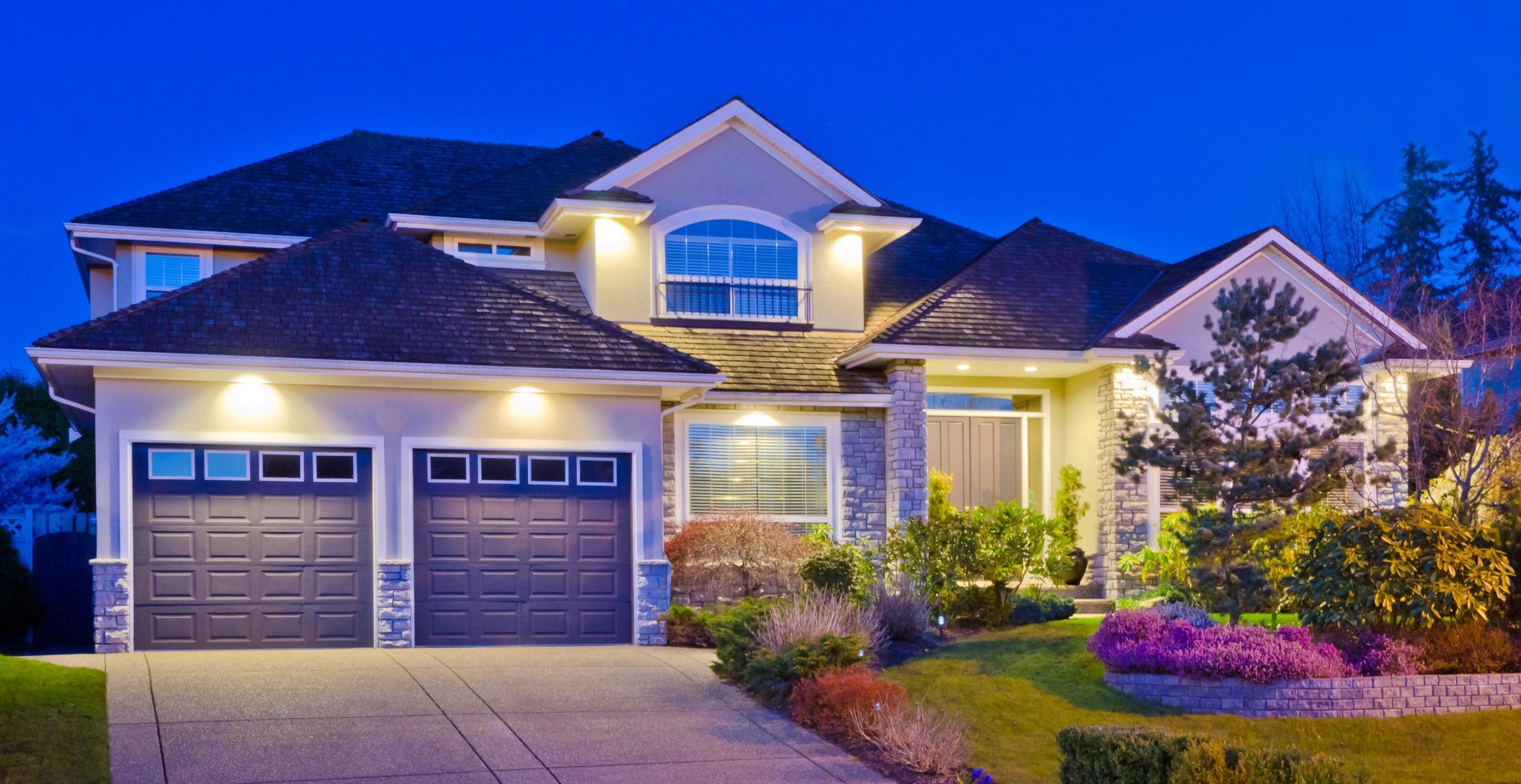Want to get hold of the perfect home? Consider these factors

When buyers get into “home search” mode, they often dive headfirst into a flurry of activity — scrolling through listings online, visiting open houses, comparing neighborhoods, and constantly staying in touch with their realtors to catch the next best deal. The idea of finding the “perfect home” becomes an exciting and, at times, overwhelming pursuit.
However, amid all this energy and enthusiasm, many buyers unintentionally overlook some of the most critical factors that contribute to long-term satisfaction and property value. A beautiful layout or recently renovated kitchen might grab your attention, but these things don’t tell the full story. Finding the right home isn’t just about aesthetics and purchase price — it’s about location, lifestyle, safety, future resale potential, and much more.
If you’re thinking about buying a home this year, here are some important factors to keep in mind to help you make a smart and satisfying purchase.
1. Location, Location, Location
You’ve probably heard it before — location is everything. But what does that really mean?
When considering location, you need to evaluate it on multiple levels:
- The town or city: Does it offer job opportunities, community events, safety, and good governance?
- School district: Is it rated highly?
- Neighborhood: Is it quiet and family-friendly or vibrant and walkable?
- The street/block: Does it have curb appeal? Are the homes well-maintained?
- The location of the home within the neighborhood: Is it near a busy intersection? Does it get good sunlight? Is there a lot of foot traffic?
Even in a fluctuating real estate market, a well-located home tends to hold its value better than a less ideally placed one. It’s also much easier to sell in the future, making it a more sound investment.
Also consider what surrounds the property. Are there commercial buildings, parking lots, or construction projects that could affect your peace, privacy, or resale value? Even if these issues don’t bother you personally, they could be a red flag to future buyers — and that matters when it’s time to sell.
Tip: Use Google Maps and satellite view to explore the surrounding area. Look for green space, public parks, community centers, and accessibility to major roads.
2. School District Quality
Whether you currently have children or plan to in the future — or even if you never plan to have children at all — the school district matters.
In most parts of the country, homes in good school districts:
- Appreciate faster in value
- Sell more quickly
- Retain more demand even during economic downturns
Many families start their home search by identifying their desired school district and then narrowing down their options based on homes available within that area. Even if you’re not currently concerned with schools, buying a home in a top-rated district can give you a significant edge in resale value.
How to Check: Use websites like GreatSchools.org or Niche.com to get objective data and reviews on local school systems. Ask your realtor for insights, and talk to neighbors if you get the chance.
3. Walk Score and Accessibility
Walkability has become a top priority for modern homebuyers. In fact, for many, a high “Walk Score” is a deciding factor.
A Walk Score measures how accessible a home is on foot to daily needs like grocery stores, schools, parks, public transit, coffee shops, and health care facilities. It ranges from 0 to 100, with higher scores indicating greater walkability.
Why does this matter?
- You can save on transportation costs.
- You’ll likely enjoy a healthier, more active lifestyle.
- You’ll have more flexibility and independence — especially important for families, retirees, and remote workers.
Even if you’re a frequent driver, living in a walkable neighborhood makes life more convenient and improves your quality of life. A neighborhood that’s walkable also tends to be more vibrant, with stronger community ties and better local businesses.
4. Crime and Safety Statistics
Safety is a non-negotiable aspect of choosing the right home. A beautiful property in a high-crime area can become a source of constant stress. Crime rates can affect everything from your insurance premiums to the resale value of your property.
Thanks to modern technology, crime data is easier than ever to access. Sites like CityProtect, SpotCrime, and even local police department websites offer detailed crime statistics, sometimes down to the block level.
Also consider these less obvious safety-related tips:
- Visit the neighborhood at night to observe lighting and activity.
- Talk to nearby residents and ask for their impressions.
- Look for security systems, neighborhood watch signs, or community patrols.
Keep in mind that crime trends can change. Look for long-term patterns, not just isolated incidents.
5. Best House on the Block? Maybe Not.
It’s tempting to go after the most impressive home in the neighborhood — newly renovated, biggest lot, premium finishes. But buying the best house on the block can limit your future return on investment.
Here’s why:
- Surrounding homes have a big influence on your home’s value.
- If your home is significantly better than nearby properties, it has less room to grow in value.
- Future buyers may hesitate to pay top dollar if they feel the neighborhood doesn’t match the home’s quality.
Instead, consider buying a modest home in a great neighborhood. These homes have more potential for appreciation, and you can always upgrade or renovate over time.
6. Fixer-Uppers: A Risk Worth Taking?
Buying a fixer-upper can be a smart strategy — if you know what you’re getting into.
Many buyers consider homes in need of work because they want to live in a desirable neighborhood where fully finished homes are out of budget. Or maybe they enjoy home improvement projects and want to add value over time.
But fixer-uppers come with major caveats:
- Renovation costs often go over budget.
- Some issues (like foundation problems or outdated wiring) are very expensive to fix.
- HOAs, local codes, and zoning rules can restrict what changes you’re allowed to make.
Before buying a fixer-upper:
- Get a professional inspection to check the structural integrity and uncover hidden issues and potential major repairs.
- Work with a contractor to estimate realistic repair costs.
- Research local zoning laws and HOA rules.
- Build in a cushion in your budget for surprises.
Don’t let the idea of a “deal” distract you from the reality of time, energy, and money that a fixer-upper requires.
7. Understanding Neighborhood Character
The character of a neighborhood goes beyond crime stats or proximity to grocery stores. It’s about the day-to-day living experience.
Questions to consider:
- What’s the noise level during different times of day?
- Is there heavy traffic in the mornings or evenings?
- Are your neighbors quiet or social?
- Is the area predominantly homeowners or renters?
- Do people maintain their properties?
You can learn a lot by walking or driving around at various times of the day and week. Attend local events or community meetings. Talk to people who live there. You might be surprised at what you learn — good or bad.
Remember: You’re not just buying a house, you’re buying into a community. Make sure it’s one where you feel comfortable, welcome, and safe.
8. Future Development and Zoning
Buyers often overlook one critical question: What will this neighborhood look like in 5 or 10 years?
Cities and towns are constantly evolving. A quiet block today could be filled with construction next year. A scenic view could disappear behind a new apartment complex. Understanding the local development plan can help you make a future-proof decision.
Check:
- Local zoning laws
- Upcoming commercial or residential projects
- Major road expansions or public transit plans
These factors can either increase or decrease your home’s value and your quality of life.
9. Affordability Beyond the Mortgage
When calculating how much home you can afford, most buyers focus on the mortgage payment. But there are many other costs to consider:
- Property taxes
- Homeowners insurance
- HOA fees
- Utility costs
- Maintenance and repairs
- Landscaping or snow removal
Also, factor in commuting costs and lifestyle expenses that come with the location. A house further from work might mean higher gas or transportation bills. A larger home might mean higher heating and cooling costs.
Tip: Use a home affordability calculator that includes these extra costs for a more accurate picture.
10. Resale Potential
Even if you plan to live in your home for many years, life can be unpredictable. You may need to move for work, family, or personal reasons. That’s why it’s important to consider not just personal preference ut also how easy it will be to sell the home in the future.
Homes with strong resale potential typically have:
- Good school districts
- Convenient access to transportation
- Appealing layout and design
- Neutral finishes
- Few quirky or highly personal features
Ask your realtor to share resale data on similar homes in the area. Consider how the home’s unique features may help or hurt future resale value.
11. Access to Transportation
Access to reliable transportation can significantly impact your daily life — commute times, job opportunities, school logistics, and even social freedom.
When evaluating a property, consider:
- Proximity to highways or major roads: Ideal for car commuters, but be cautious of excessive noise, pollution, and safety concerns if a major road is too close.
- Public transportation options: Is there a bus stop, subway, or train station nearby? How frequent and reliable are the services?
- Biking infrastructure: Are there dedicated bike lanes or safe routes to get around without a car?
- Commute time to work or school: Use real-time apps to simulate rush hour traffic from the home to your destination.
Access to transportation is especially crucial in urban areas where parking may be limited or in cities with strong public transit systems. But even in suburban or rural areas, being within reasonable reach of highways or park-and-ride stations can offer peace of mind and convenience.
Tip: If possible, do a test run during your usual commute hours to see what it really feels like.
12. City vs. Suburb
Another fundamental consideration in your home search is whether you want to live in the heart of the city or in the suburbs — each offers its own set of pros and cons.
Living in the City:
- Pros:
- Close to jobs and nearby amenities such as dining and culture
- Usually better public transit and healthcare facilities
- Walkability and dense communities
- Cons:
- Smaller homes or apartments
- Higher prices per square foot, which could mean higher down payment and closing costs
- Noise and congestion
- Less green space and parking
Living in the Suburbs:
- Pros:
- More spacious homes and outdoor space
- Quieter, more family-oriented environments
- Often stronger public schools
- Better resale value for single-family homes
- Cons:
- Longer commutes
- Dependence on a car
- Fewer entertainment or dining options nearby
The right choice depends on your priorities. Do you love vibrant energy and spontaneous nights out? Or do you crave a quiet backyard and weekend barbecues? Consider not only where you are now and in the near future, but also where you hope to be in five or ten years.
13. Lifestyle
While your home is your sanctuary, your surroundings greatly influence your quality of life. Think about how close you are to the activities and spaces that bring you joy and help you recharge.
Some key factors to consider:
- Entertainment and dining: Are you close to restaurants, theaters, museums, or shopping centers? Do you enjoy being able to walk to a café or meet friends after work?
- Recreational opportunities: Look for proximity to parks, trails, gyms, community centers, or sports facilities.
- Nature access: Even in urban areas, easy access to green spaces can improve your well-being. Suburban buyers might seek nearby lakes, forests, or hiking spots.
- Faith and community spaces: How close are you to places of worship, support groups, or cultural centers?
- Weekend activities: Think about how far you’d need to drive for a spontaneous getaway, a beach day, or a ski trip.
- Health care: How important is it to be close to more essential amenities such as health care?
A well-located home supports not just your needs, but your lifestyle.
Final Thoughts: Take the Time to Buy Smart
Buying a home is one of the most important financial decisions you’ll ever make. It’s not just a transaction — it’s a commitment to a lifestyle, a community, and a future. Don’t let surface-level appeal or a fast-moving market rush your decision.
Take time to research, ask questions, and look beyond the basics with careful consideration. Talk to your realtor about all of these issues. The more you understand about what makes a home “perfect” for you — and potentially perfect for future buyers — the more confident and content you’ll feel in making a smart investment.
Ready to Take the Next Step?
A home purchase is one of the most important decisions you will make. The team at Guidance Residential is here for you, from the first step of pre-qualification or pre-approval, on through to finding the right real estate professional for you and your family — or refinancing a home you already own. We invite you to explore the home buying process with Guidance Residential today. You can also instantly calculate an estimate specific to your personal situation with our finance calculators online.
Guidance Residential remains the #1 U.S. Islamic home financing provider, with more than 40,000 families assisted over more than 20 years. Learn more about our co-ownership model of Islamic home financing, and get started on your home finance journey today.
Your Guidance Residential Account Executive is here to help with any questions. Looking to refinance or purchase? Have a friend or family member who is looking for a home? Call 1.866.Guidance, or start an application today.
Originally published in January 2016, updated July 2025.




